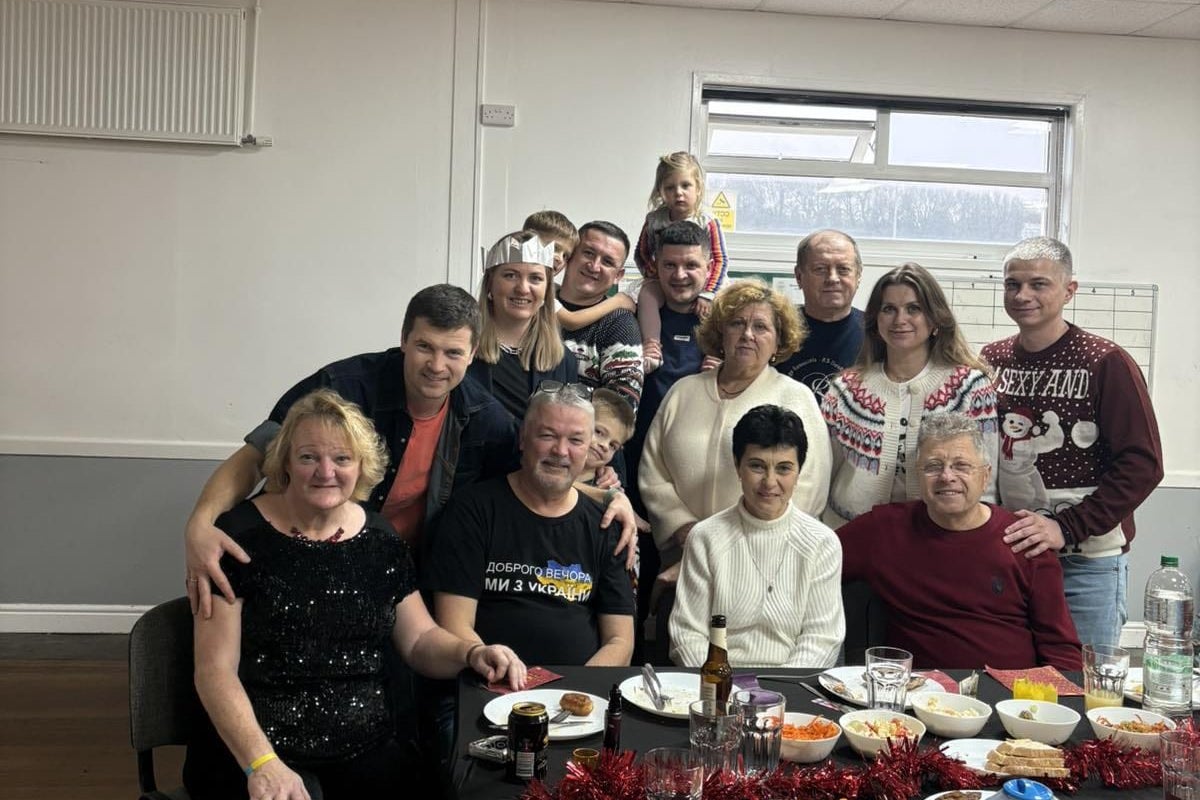Hosts of Ukrainian refugees say they are facing “endless bureaucracy” and “horrendous” support from the Home Office, with thousands stuck in limbo more than three years after Russia’s invasion of the country.
For Juliet Grover, the daughter of a Jewish refugee who escaped the Nazis, the decision to become a host was personal. She signed up to the ‘Homes for Ukraine’ scheme as soon as the war began in February 2022, firmly believing that providing refuge to those in need was important.
Yet immediately she says she was struck by the difficulties facing host families, with little to zero information and advice given by the UK government.
“The first people who came were a woman and her two young children who had applied for visas,” she told The Independent. “She was stuck in a refugee centre in Poland; it took us four months to get the visas sorted, it was horrendous.
“I was on the phone every day going around in circles, I went to see MPs and the government but we were completely stonewalled. We managed to get a visa sorted for her and her daughter, but her son’s visa was not issued, which meant they couldn’t travel over for months.”
In her desperation, she even drove to Sheffield from Wales to try and speak to someone at the Home Office, but was refused entry at the reception.
The mother Ms Grover helped, called Lena, was eventually able to come to the UK with her son and daughter, then aged four and five. Ms Grover spent hours registering them with schools, the GP, the local authorities and with national insurance.
“Thankfully I’m a housewife and I have the time to go through these things, but I didn’t understand any of it. I’d never had to go to the council or sort right to work codes; you’ve got no chance of speaking to a single person if you ask for help.”
Among the many issues facing Ukrainian refugees is the lack of translating services available, which includes information papers to help their situation, which are often only provided in English.
After Russian forces invaded eastern Ukraine more than three-and-a-half years ago, Lena packed a quick rucksack, grabbed her two children and fled from her home city in Dnipro.
Despite her previous employment working in a bank, she is now a cleaner while her husband, who joined her eight months later, works in a Lidl as he cannot work as an engineer in the UK.
“They are strong, good people,” Ms Grover said. “I’ve now been involved with helping 20 of them, and there’s not one who hasn’t got a job within a fortnight.”
Last November, Lena’s elderly parents also travelled to the UK and are now residing with Ms Grover. Despite being a retired doctor and teacher, they do not qualify for retirement here and they now regularly attend the jobcentre in search of menial work.
Ms Grover said: “I’m not allowed inside to sit with them, and they can’t speak a word of English. They don’t know the culture or language, they’re fish out of water and they’re completely lost,” she said. “Just last week, they were informed that their home had been destroyed by a Russian strike.”
They are now among the 300,000 Ukrainians residing on temporary visas in the UK, with former home secretary Yvette Cooper announcing earlier this month that it could be extended by a further 24 months.
However, the process of renewing visas has been painful with only a 28-day window to complete the complicated process, and an eight-week waiting time, which places their jobs and accommodation at risk.
“We spent weeks trying to do it and when the visas were eventually renewed, Lena and her daughter’s came through but again her son’s was missing. How does that happen? It just had gotten lost in the abyss,” Ms Grover explained.
Many Ukrainians struggle to find accommodation in the private rented sector given that they need a deposit, while others struggle to find a UK guarantor and negotiate with landlords due to a language barrier.
Last year, a report by the British Red Cross found that breakdowns in hosting arrangements often occurred due to a lack of sufficient training and ongoing support for hosts, as well as cost-of-living pressures.
Luke Piper, head of immigration at The Work Rights Centre, said: “Frustratingly, the experience of Lena’s family absolutely rings true with what we’re seeing among our clients since the roll-out of the Ukraine Permission Extension scheme requiring Ukrainian people to apply to extend their stay. We are also seeing technical issues that make it difficult for Ukrainians to prove their right to work and their right to stay.
“Whenever the government changes the visa rules or rolls out a new scheme, we receive a spike in calls from confused and panicked individuals trying to figure out what it means for them.
“This ongoing uncertainty is taking a mental toll on many Ukrainian people in the UK and hindering their ability to progress their careers or put down roots. Some families have been in the UK for nearly four years now – this will become six with the visa extension. With no sign of war in Ukraine slowing down, it’s time ministers reconsidered routes to settlement for Ukrainians who have sought to rebuild their lives in Britain.”
A government spokesperson said: “We thank all the hosts and sponsors who have made an invaluable contribution to our Ukraine schemes. A range of guidance is available on the government website to support them, as well as through the voluntary and community sector, and through local authorities.
“Government guidance for Ukrainians who intend to make an application for the extension scheme is available in Ukrainian and Russian.”

